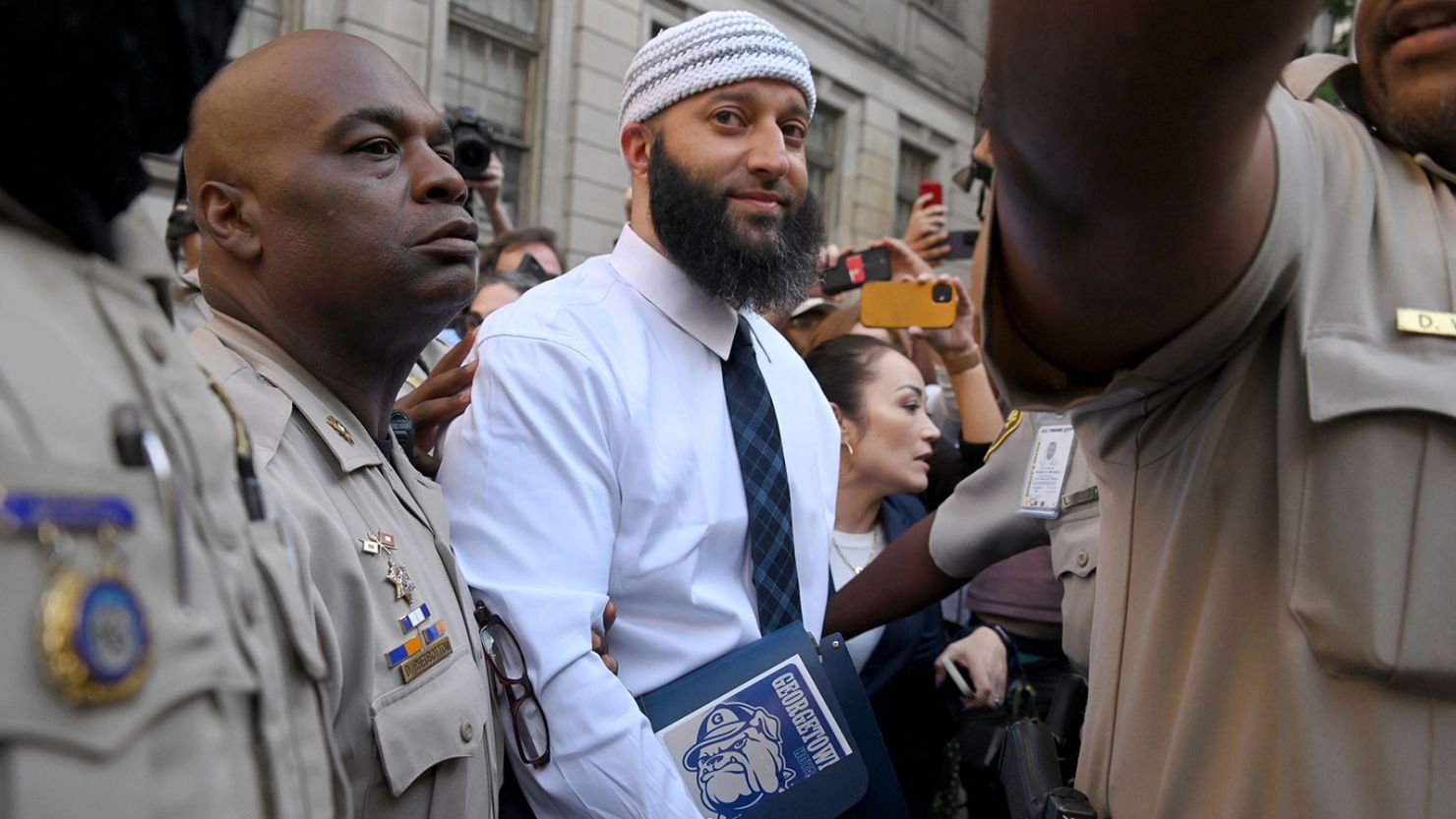Adnan Syed, the man who spent more than two decades behind bars for the 1999 killing of ex-girlfriend Hae Min Lee, asked the Maryland Supreme Court on Wednesday to review a lower court’s decision that reversed his vacated conviction, according to court documents.
The motion, which was filed by his attorney to the state’s highest court, seeks an evaluation of several factors in the high-profile case, which was featured in the landmark podcast “Serial.”
One of those aspects challenges Lee’s brother’s narrative that he was not given enough notice about a hearing last year, which ultimately resulted in a judge vacating Syed’s murder conviction and him being released.
In March, a state appellate court reinstated Syed’s conviction after ruling that a lower court had violated the rights of Lee’s brother, Young Lee, to attend the hearing.
Meanwhile, Syed’s attorneys argue the victim’s brother had confirmed he would attend the hearing via Zoom.
“Almost immediately following a scheduling conference on September 16, the State emailed Mr. Lee to notify him that the hearing would be held on September 19,” the motion states.
“Because the hearing would be in-person, the State informed Mr. Lee that he would be provided a Zoom link so that he and his family would have the option of attending remotely,” according to the filing.
Then, when the state’s representative didn’t receive a response from the victim’s brother after two days, “she reached out to him by text message to confirm that he had received her email and was aware of the hearing.
“Mr. Lee acknowledged receipt of the email and stated that he would be joining by Zoom,” the filing continued.
Syed’s “innocence is not at issue, but his rights as a defendant and freedom as an exoneree are directly impacted by the Appellate Court of Maryland’s decision,” Syed’s attorney, Erica Suter, said in a statement.
“Beyond the import of these proceedings to Adnan and his family, the issues raised have broader implications for our entire legal system, most notably the authority of the State to dismiss a case, the role of victims’ representatives in proceedings to redress unjust convictions, and the restrictions placed on judges’ discretion to utilize remote communication services like Zoom,” Suter added. “We hope that the Supreme Court will consider these vital issues of first impression.”
An attorney for the family of Hae Min Lee, David Sanford, responded to the filing.
“The Appellate Court of Maryland recognized that victims in the state of Maryland have rights. We are confident that the Maryland Supreme Court will also recognize those rights and hold that victims may not only receive notice of and attend a vacatur hearing, but also meaningfully participate in that hearing.”
Attorneys for Hae Min Lee’s family asked the court in February to redo the hearing that vacated Syed’s conviction.
The decision to vacate Syed’s conviction came nearly eight years after the podcast dug into the case and raised questions about the conviction and Syed’s legal representation.
In explaining her decision to vacate, Baltimore City Circuit Judge Melissa Phinn cited material in the state investigation that was not properly turned over to defense attorneys, as well as the existence of two suspects who may have been improperly cleared as part of the investigation.
CNN’s Aya Elamroussi contributed to this report.






